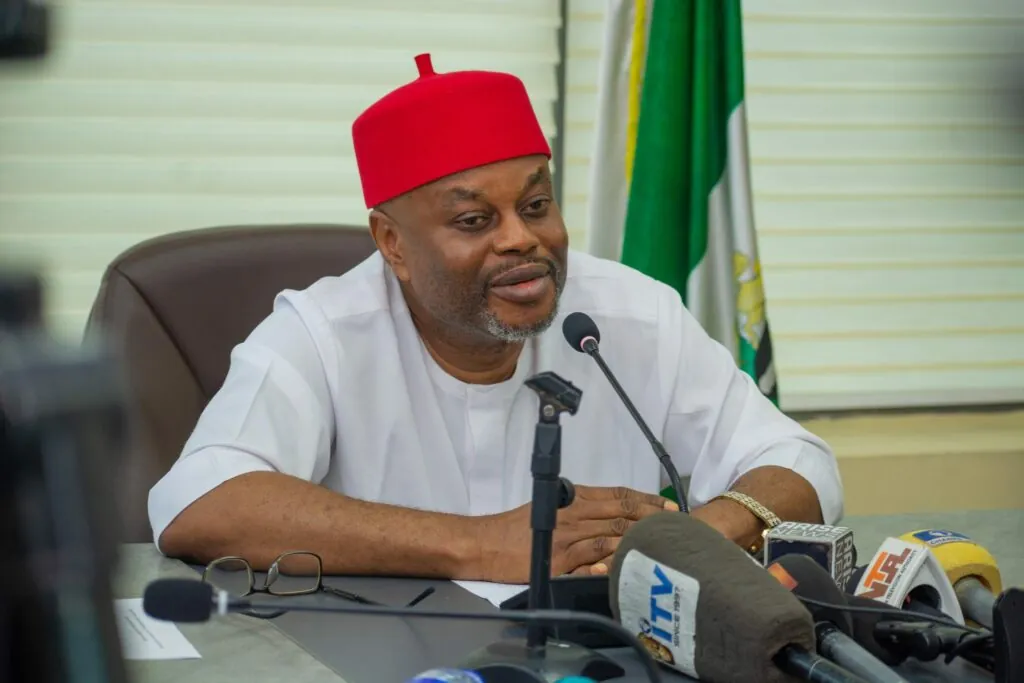By Adam Mosadioluwa
Copyright tribuneonlineng

The allegations of certificate forgery among public officials have, no doubt, become a recurring controversy in Nigeria.
The recent resignation of Uche Geoffrey Nnaji, Minister of Innovation, Science and Technology, over alleged falsification of academic credentials, has once again brought the issue into public discourse.
Tribune Online reports that Nnaji tendered his resignation on Tuesday following controversies over his academic records and allegations of certificate forgery.
However, it is worth noting that Nnaji is not the first Nigerian public figure to be caught up in certificate-related scandals. Over the years, notable high-profile political figures have faced similar accusations.
While some resigned, some were cleared by the courts, and others’ allegations simply faded away with time.
1. Kemi Adeosun
In 2018, a former Minister of Finance, Kemi Adeosun, resigned from her position after it emerged that her NYSC exemption certificate was allegedly forged.
Although Adeosun, who was appointed by late former President Muhammadu Buhari, maintained that she had believed the document was genuine, but public pressure forced her resignation.
2. AbdulRahman AbdulRazaq
Ahead of the 2023 general election, the Kwara State Governor, AbdulRahman AbdulRazaq, was accused of submitting a forged WAEC certificate to the Independent National Electoral Commission (INEC).
However, the Federal High Court in Abuja, in January 2023, dismissed the certificate forgery case filed by the Peoples Democratic Party (PDP) against him.
Inyang Ekwo, the judge, ruled that the suit was an abuse of the court process.
“Once a court is satisfied with the proceedings before it that they amount to abuse of process, the court has the right, in fact, duty to invoke its coercive powers to punish the party which is in abuse of its process.”
“Such power is often exercisable by a dismissal of the action which constituted the abuse. I, therefore, make an order dismissing this case for being an abuse of process of court,” the judge said.
3. Peter Mbah
The Governor of Enugu State, Peter Mbah, was accused of submitting a forged NYSC discharge certificate to the Independent National Electoral Commission (INEC) before the 2023 elections.
However, a Federal High Court in Abuja dismissed the forgery claim and held that the certificate was genuine.
The court found that evidence presented showed that although Mbah was mobilised for service in 2001, he actually completed it in 2003.
In a judgment delivered by Justice Inyang Ekwo in the N20 billion lawsuit filed by the governor against the NYSC, the court ruled that Mbah’s discharge certificate was indeed issued by the agency, noting that the NYSC had “conspired by fraudulent design, suppressed and misrepresented facts” in its disclaimer.
Justice Ekwo awarded N5 million in damages against the defendants.
The court further stated that Mbah, midway through his service, obtained permission from the NYSC to attend the Nigerian Law School and was later reinstated into the scheme in 2003.
4. Godwin Obaseki
Immediate past Edo State Governor, Godwin Obaseki, also faced allegations that the degree certificate he submitted to INEC was forged.
However, the Supreme Court in May 2023 dismissed the certificate forgery case brought against Obaseki by the All Progressives Congress (APC).
In its ruling, a five-member panel of the apex court held that the case lacked merit and imposed a punitive fine of ₦1 million on the APC and its co-appellant.
The suit, filed by the APC and one of its members, Williams Edobor, originated at the Federal High Court in Abuja ahead of the September 2020 Edo governorship election.
Mr Obaseki, who contested for a second term under the Peoples Democratic Party (PDP), eventually won the election.
5. President Bola Tinubu
President Bola Ahmed Tinubu has also faced scrutiny over the authenticity of the academic certificates he submitted to Nigeria’s electoral body.
During the 2023 election cycle, controversies arose regarding discrepancies in his academic records from Chicago State University (CSU).
Former Vice President Atiku Abubakar had claimed that documents showing that Tinubu graduated from Chicago State in 1979 are not authentic, arguing that it is ground to nullify Tinubu’s election victory.
The institution, however, later confirmed that Tinubu graduated in 1979 with a Bachelor of Science degree.
The confirmation statement by Chicago State University reads:
“As an educational institution, we are sometimes asked to provide information related to student records. Federal law known as FERPA (the Family Educational Rights and Privacy Act) protects the privacy of student records and limits what an institution can release.
“In August 2023, a request was made in U.S. federal court for the university to provide information related to educational records concerning Bola Tinubu, the President of Nigeria, and a former CSU student. The university has confirmed Tinubu attended CSU and graduated in 1979 with a bachelor’s degree. Federal law, however, prevents us from providing any further information without consent or unless allowed to do so via court order.
“CSU is confident in the veracity and integrity of our records regarding Tinubu’s completion of graduation requirements and degree certificate. The university is not a party to the Nigerian legal proceedings that spurred this request, and a U.S. federal judge will determine whether the university will provide further requested information.
“Our response to the request for Tinubu’s academic records has been entirely consistent with our practices, policies and federal law. We would respond in exactly the same manner for any request for any student information by a third party.”